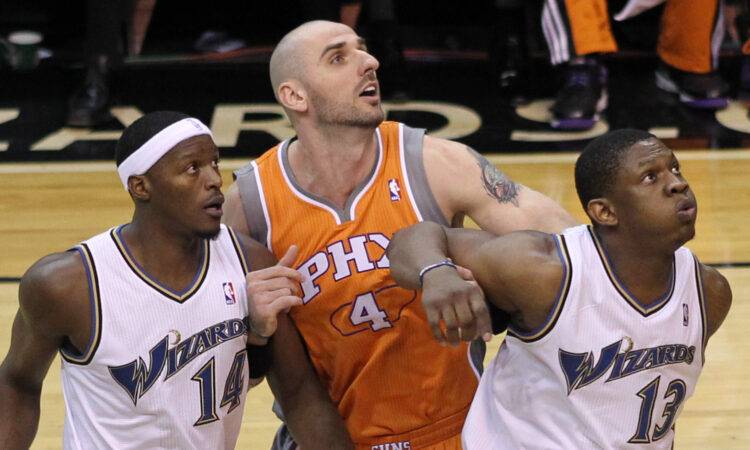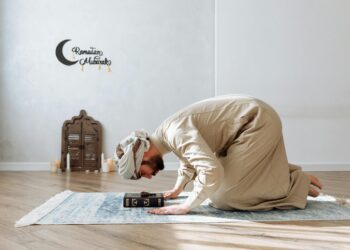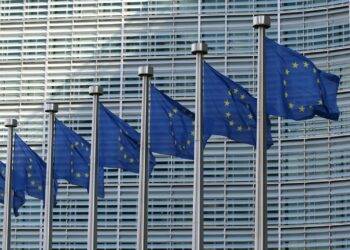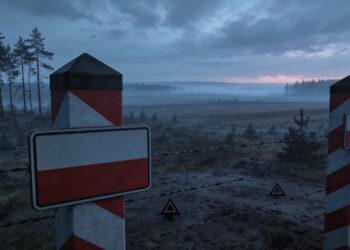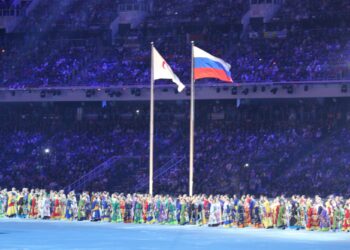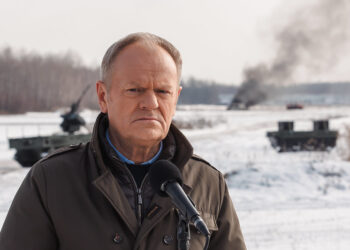Former NBA player and Polish national basketball team star Marcin Gortat has declared his personal commitment to defending Poland in the event of armed conflict. In a televised interview on Kropka nad i (TVN24), Gortat voiced strong support for military readiness, civic responsibility, and rational defence policies, drawing on his experience in humanitarian work and observations from Poland and abroad.
“I’d be on the front line within hours”
In one of the most striking moments of the interview, Gortat emphasised that, should a conflict reach Polish territory, he would not hesitate to take up arms.
“If there were a conflict, I think I’d be on the front line within two or three hours to defend our country. It’s our country, and we must be ready to defend it.”
The former athlete stressed that national security is a shared civic responsibility, not solely the task of professional soldiers or political leaders.
Calls for wider military training
Gortat used the platform to advocate for broader access to basic military training for Polish citizens. He argued that knowledge of defence procedures and the responsible handling of firearms is essential, particularly in today’s increasingly unstable geopolitical context.
He expressed approval for voluntary defence programmes that allow civilians to participate in supervised training, while distancing himself from more extreme proposals that encourage widespread gun ownership.
“People should be prepared — not militarised, but trained,” Gortat explained. “Military literacy is part of national resilience.”
Criticism of politicised defence rhetoric
Gortat also criticised recent political commentary surrounding public figures taking part in such training. Specifically, he responded to remarks by former defence minister Mariusz Błaszczak, who dismissed Warsaw Mayor Rafał Trzaskowski’s participation in military exercises as a “staged stunt” (ustawka).
“That kind of attitude is catastrophic,” Gortat said. “This isn’t a game. We need leaders who take defence seriously, not turn it into a political tool.”
The former basketball player underlined that defence should transcend partisan divisions, particularly in light of regional security threats posed by Russia’s aggression against Ukraine.
First-hand experience supporting Ukraine
Gortat’s views on national defence are informed by his involvement in delivering humanitarian aid to Ukraine. He described how, early in the war, many aid supplies were diverted or stolen before reaching those in need. To ensure effective support, he and his team arranged direct deliveries to the front lines.
“We worked to bypass corruption and make sure help went where it was actually needed — to the soldiers defending Ukraine,” he said.
His efforts have given him insight into the realities of frontline conflict and the importance of readiness, logistics, and public support.
Concerns about social cohesion
While broadly supportive of Ukraine and its people, Gortat did raise concerns about the conduct of a small number of young Ukrainian men living in Poland. He emphasised that these were isolated incidents but noted the importance of mutual respect, especially at a time when Poles continue to extend significant aid and shelter.
“It’s not everyone, of course,” he clarified. “But certain attitudes just shouldn’t happen.”
His remarks reflect ongoing discussions in Poland about integration, solidarity, and the long-term responsibilities of both host communities and refugees.
Rejection of liberalised gun ownership
Gortat took a firm stance against proposals for unregulated gun ownership, particularly those put forward by Jacek Hoga, president of the Ad Arma foundation, who has publicly advocated for allowing access to firearms even for children and individuals with criminal records.
“That’s just madness,” Gortat said. “We cannot have people keeping heavy weapons at home. These are very irresponsible ideas.”
Instead, he favours a controlled, state-coordinated approach to defence preparation — one that promotes safety and discipline, rather than fear or escalation.
Public figure with civic influence
Since retiring from professional sport, Gortat has become an influential voice in Polish public life. His foundation supports youth development and education, and he regularly engages in discussions about civic duty, national defence, and social responsibility.
His strong stance on readiness and responsibility underscores a growing conversation in Poland about how society should respond to potential security threats.
As the war in Ukraine continues and NATO strengthens its eastern flank, Gortat’s message resonates with those calling for a balanced, proactive approach to national defence — one that prepares citizens without undermining democratic principles or public trust.

